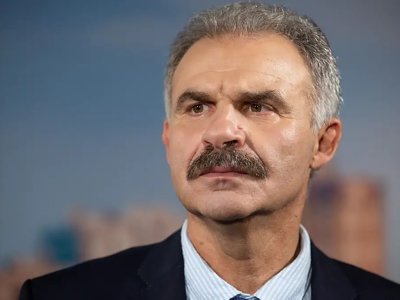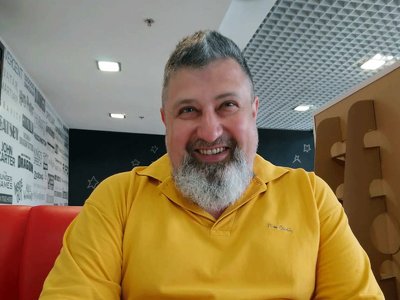Are we seeing a shift in Russia’s attitude to Central Asia?

In synchronised media interviews on the eve of their meeting in Astana, the Kazakh and Russian leaders signalled a commitment to maintain good relations.
Both Tokayev and Putin made it clear that it was a position based on a calculated trade-off between the two sides.
This shows a significant shift in the dynamic of Russian-Kazakh relations since Russia’s invasion. An isolated and weaker Russia is being forced to treat Kazakhstan and the rest of Central Asia with more respect.
Central Asia has vast energy and other natural resources, and it is an important transit corridor for Russia’s trade with southern Asia. Russia has also been using ‘parallel imports’ from Kazakhstan, Uzbekistan and Kyrgyzstan to evade Western economic sanctions.
In the interviews with each others’ official newspapers published on Wednesday, Tokayev and Putin addressed the same questions.
Neither mentioned the war on Ukraine which Kazakhstan does not officially support.
Putin’s tone was respectful, while Tokayev’s wording showed an attempt to underline that despite being a friend to Russia, Kazakhstan remains an independent state.
In his interview with the official Kazakhstanskaya Pravda newspaper, Putin described Kazakh-Russian relations as “a particularly privileged partnership” “based on mutual respect, recognition of sovereignty, territorial integrity and non-interference in internal affairs”.
“There are things we can offer to each other, and ways we can help one another”, he said.
In his turn, in an interview with Russia’s official Izvestiya newspaper, Tokayev described Kazakh-Russian relations as “constructive and aimed at mutually acceptable results”.
“We always try to take into account the Russian partner’s position, and they try to take into account our opinion.”
Further, both spoke about plans to broaden cooperation in the natural gas sector.
Earlier this year the Kazakh government and Gazprom signed a strategic cooperation agreement. In October Gazprom started shipping natural gas to Uzbekistan via Kazakhstan.
The existence of Soviet-built gas transportation and distribution infrastructure in the region makes it easier to launch such projects.
Putin said Russia was also ready to help with the gasification of Kazakhstan’s northern and eastern regions.
Tokayev said that the new natural gas projects with Russia would strengthen Central Asia’s energy security and promote industrial development.
Putin then made the point that Russia provided Kazakhstan with “the most reliable and economically efficient route” for shipping its oil to European markets, referring to the Caspian Pipeline Consortium.
Tokayev too noted that 80 percent of Kazakh oil exports went via Russian territory. He added, however, that more than 100m tonnes of Russian oil was planned to be delivered to China through Kazakhstan by 2033.
Both mentioned that Kazakhstan was considering building its first nuclear power plant – Russia has long been seeking to get a contract for this.
Putin repeated that Rosatom was ready to build a nuclear power station in Kazakhstan, “using the most advanced technologies and in line with the highest environmental protection and safety standards”.
Tokayev told Izvestiya that Kazakhstan “values highly” Russia’s offer of help with the nuclear plant plans, but a final decision on whether the country would go ahead with the plans would be taken after a referendum.
Speaking of Russia’s relations with Central Asia in general, Putin said the priorities were “intensification of a political dialogue” and expanding cooperation practically in all spheres, from the economy to culture.
Tokayev offered a broader, strategic perspective on the overall direction of cooperation between Eurasian countries.
He said that “a tough competition is taking place in the world for control over transport routes and logistics”.
“A new Eurasian transportation system is being developed currently, one which could give its participants serious economic and political dividends, provided the approach is right,” Tokayev said.
“Kazakhstan will serve as a reliable logistics hub, using all its resources for that,” he said.
Also, both presidents talked about the Russian language.
Putin said it was “our common wealth which gives us a competitive advantage, but most importantly it is an important factor cementing Russian-Kazakh friendship”.
Tokayev noted its “consolidating” role within the Commonwealth of Independent States. He added, however, that supporting the Russian language as something that facilitates cooperation could not affect the member countries’ domestic language policies.
- Последние
- Популярные
Новости по дням
8 мая 2024







